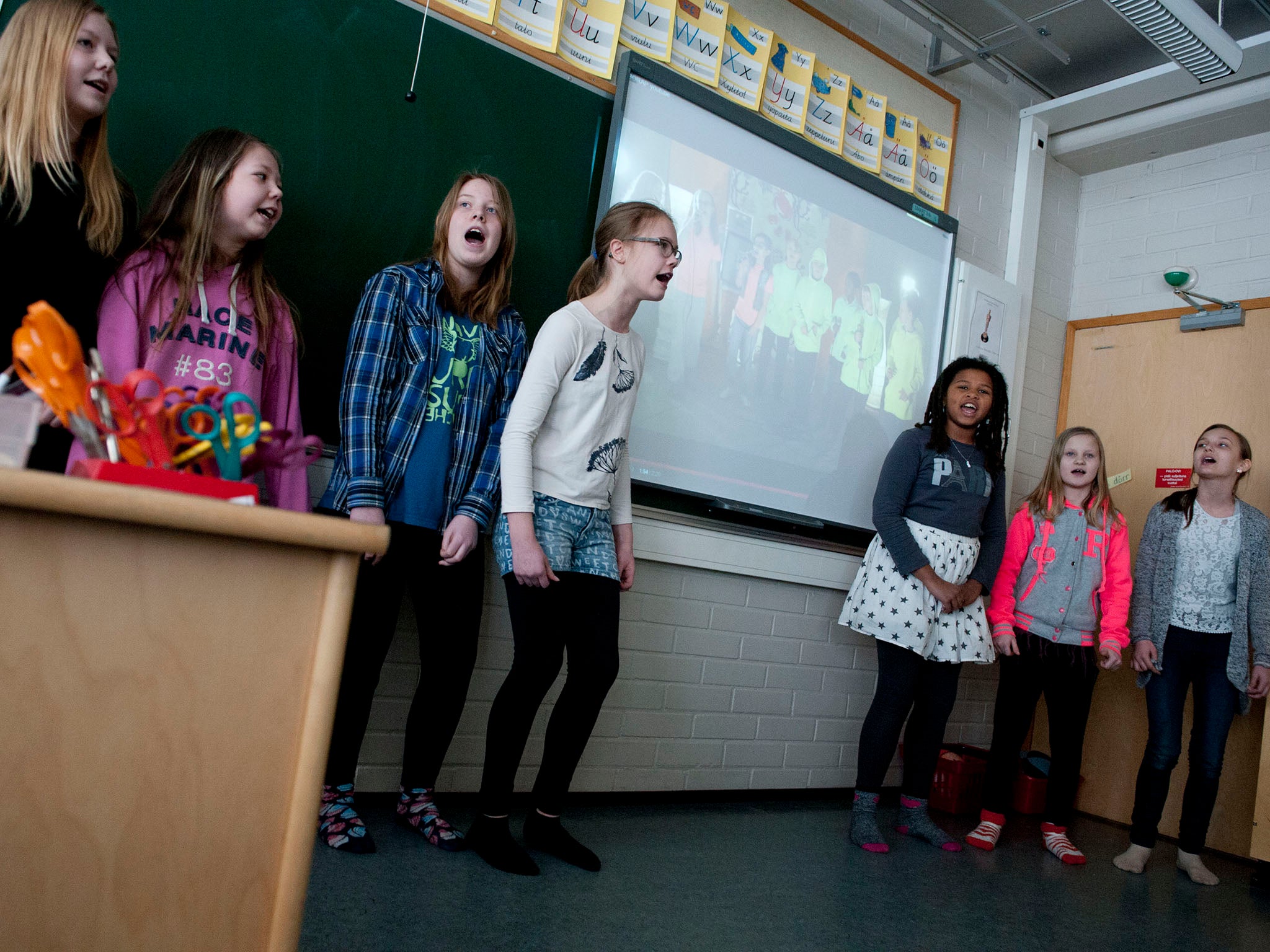Finland's 'teaching by topic' instead of 'teaching by subject' policy actually started in Norway 40 years ago
But will the education reforms catch on in the UK?

Your support helps us to tell the story
From reproductive rights to climate change to Big Tech, The Independent is on the ground when the story is developing. Whether it's investigating the financials of Elon Musk's pro-Trump PAC or producing our latest documentary, 'The A Word', which shines a light on the American women fighting for reproductive rights, we know how important it is to parse out the facts from the messaging.
At such a critical moment in US history, we need reporters on the ground. Your donation allows us to keep sending journalists to speak to both sides of the story.
The Independent is trusted by Americans across the entire political spectrum. And unlike many other quality news outlets, we choose not to lock Americans out of our reporting and analysis with paywalls. We believe quality journalism should be available to everyone, paid for by those who can afford it.
Your support makes all the difference.It was billed as one of the most radical reforms ever undertaken by a nation state when Finland decided to move away from “teaching by subject” to “teaching by topic - phenomina-based learning, as it has been called.
It was - although it probably would not have been considered as such by anyone who had a connection with the Ringstabekk school just outside Oslo in Norway. The school had embarked on a similar reform 40 years ago.
So it is probably best placed to adjudicate on how such a radical transformation has bedded down.
“Most parents are very satisfied with the school,” said its headteacher Bjorn Bolstad. “They realise that it is actually preparing their kids for a future working life.”
The policy changed kicked in after teachers observed that the pupils were not truly engaged in what they learned at school
As a result they changed to organising themselves in teams to deliver topic-based lessons. “When teachers are hired at this school (a 425-pupil school for 13 to 16-year-olds), they know very well that they will have to co-operate with other teachers - and not just the ones who teach the same subjects as themselves,” said Mr Bolstad.
Each team consists of four to six teachers and is responsible for 60 to 75 pupils. As an example of how they work, students in the eighth grade ( 13-year-olds) will often study earthquakes, volcanos and other earth forces - normally considered part of a geography or natural science lesson.
Now, however, teachers will come up with several different storylines for the lesson - encompassing other subjects In one, they pretend they have to climb Mount Everest.
It includes the study of maps, weather and climate, make a list of the equipment they need, calculate the time they will need, make a budget for the trip and apply for funding in English (a foreign language).
Alternatively, they could focus on the environment and sustainability. This could be done by getting them to concentrate on an area of their locality and work as consultants. They produce a report - focussing on particular areas like transportation, energy and waste.
“If they are to produce models, they have to work with ratios and other mathematics as well as design,” said Mr Bolstad.
Intriguingly, the school still has to follow the national curriculum and national assessment system - where students still get individual grades for each traditional subject area. They perform well above average - proving the approach gives them the knowledge and skills they need.
“Not only that but it also motivates students to learn for the sake of learning,” said Mr Bolstad. “Students become very engaged in what they do at school - sometimes they don’t want breaks because they are eager to continue the work they have started.”
Whether the approach will catch on in the UK is a moot point, though. Our system is much more rigidly controlled by tests and exams as pupils move through the education system.
There is, though, a growing clarion call - backed by the CBI, Tristram Hunt - Labour’s education spokesman - and Conservative Education Secretary Nicky Morgan to move from an “exams factory” approach to a focus on character building and imparting communication skills. What we have not seen yet is the fine detail of how this would be applied to schools.
Join our commenting forum
Join thought-provoking conversations, follow other Independent readers and see their replies
Comments